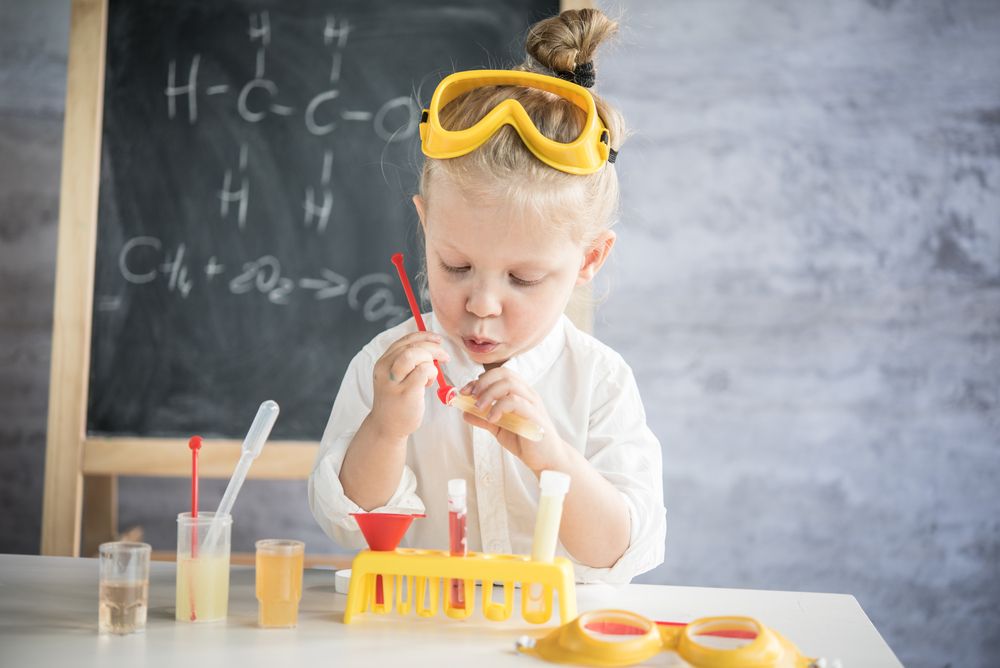It's National Science Week
Published on Tuesday, 13 August 2019
Last updated on Monday, 30 December 2019

This week, 10-18 August, is National Science Week, Australia's annual opportunity to celebrate science and an excellent excuse to try out a range of interesting science-based activities.
First held in 1997, National Science Week has become one of Australia's largest festivals and in 2018 1.2 million people participated in over 2100 events and activities. It's not too late for your early learning service to join the fun and we've got some great ideas to help you celebrate.
The theme for Science Week 2019 is Destination Moon: more missions, more science, which is a rich theme for early learning centres. This theme offers educators and children an opportunity to discover past missions to the Moon and space programs that have solved some of the seemingly unsolvable problems of space travel, as well as current and future space programs, operations, and missions.
To help you make the most of Science Week try the following:
- Invite parents who are scientists or who work in a science related field to visit your service and share their knowledge with the children. Encourage parents and visitors to bring safe objects from their profession for children to look at and hold. Pictures or books could also be helpful.
- Have a science dress up day, providing families with ideas related to the children's current interests. For example, dressing as an animal that comes from an egg (butterfly, spider, bird, dinosaur, fish); or wearing shapes or colours related to the weather (rainbows, clouds, rain, sunlight).
- Invite children to do a simple science activity at home with their families and provide instructions and handout information. For example, mix vinegar and sodium bicarbonate from the kitchen cupboard, or look at the phases of the Moon.
- Decorate the walls of your service with science related pictures, drawings, murals and paintings and invite children to add colour to printouts of the National Science Week colouring sheets.
- Explore objects and hands-on activities related to Indigenous science and technology, such as animal tracks, the seasons, and fish traps. The IndigiSTEM Activities Workbook and IndigiSTEM Educator Notes include 20 STEM activities that incorporate Indigenous perspectives.
- Include science-related books in daily reading and book displays, you may like to check out the Early Learning STEM Australia (ELSA) booklist for ideas.
- Book a science-themed incursion for the children in your service the STARPortal has some great suggestions.
- Another incursion idea is the Museum in a Box, which gives children an opportunity to experience real museum specimens, including casts, artefacts, dioramas, images, DVDs, CDs, books and resources from the Australian Museum.
- Organise science-related professional development for your educators to inspire them to incorporate science into their programming during National Science Week and on an ongoing basis throughout the year, for example the training provided by Little Scientists.
There are lots of resources educators can access to offer ideas and inspiration for making Science Week interesting and fun for everyone. Here are some to get you started:
- Search for science related resources from Early Childhood Australia.
- Look for discovery centres, including science centres, zoos, botanic gardens and museums in your area for activity ideas and excursions.
- Watch preschool science activities in action in Questacon Science Time videos.
- Check out activities from Children's Discovery Museum in the Little Bang Book of Discovery.
For more ideas and some interesting case studies on how early learning services have celebrated National Science Week check out the Early Childhood Activities Booklet you can also visit the website.
Related Articles

Valentine's Day craft ideas - 2019
Heartfelt art creations for Valentine's Day to create a sense of warmth and kindness around your place of service.

Harmony Day activities
Harmony Day, is an initiative celebrating the successful integration of migrants into our community and reinforcing the importance of inclusiveness to all Australians.

Winter STEM ideas
Now that winter is officially here and children are spending more time indoors, there's never been a better time to try some fun new activities.
